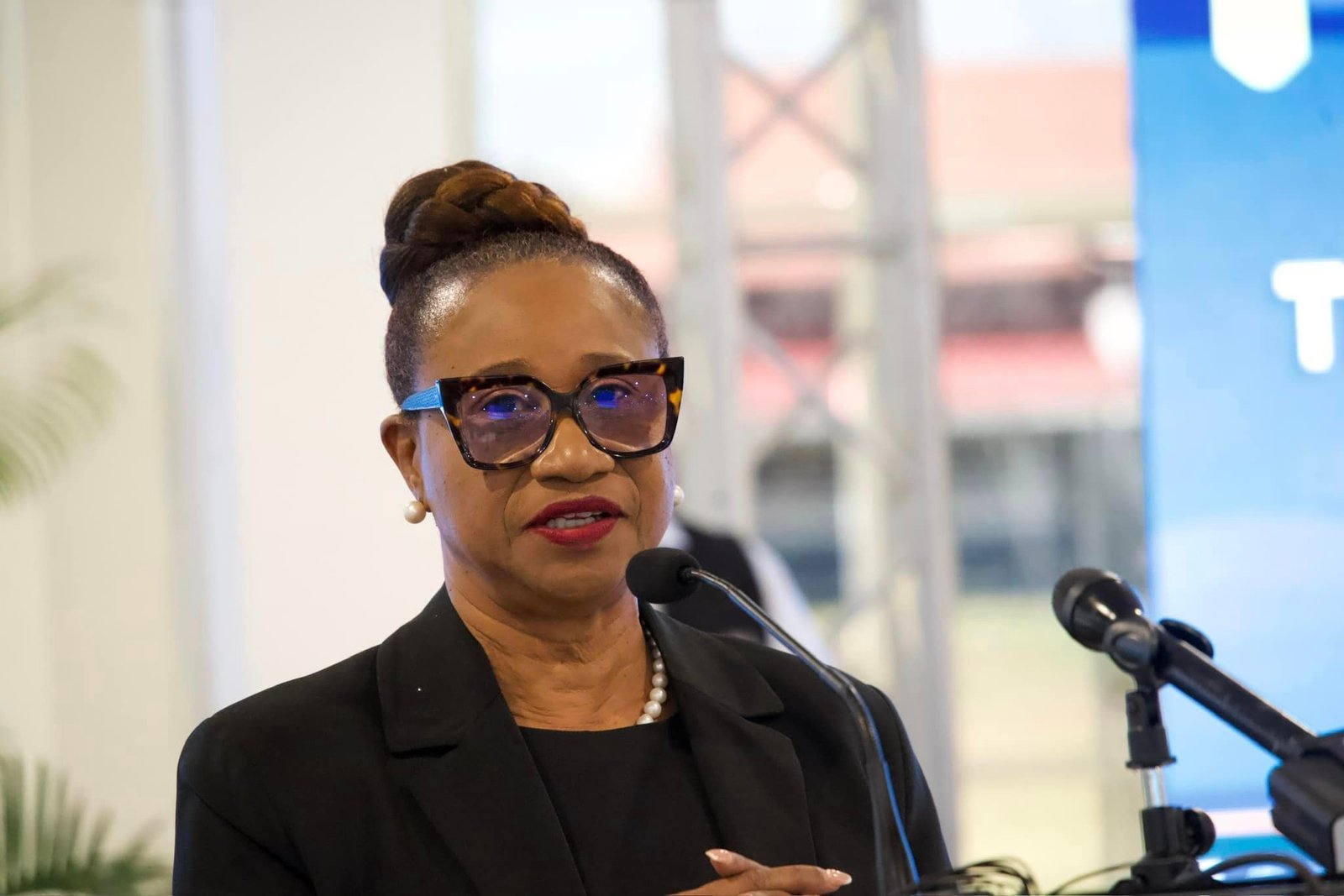Restorative justice: “The courts cannot do it alone” – Chancellor
- Home
- News

Chancellor of the Judiciary (ag), Yonnette Cummings-Edwards on Monday urged the participants in the Governments of Guyana and Canada’s Restorative Justice Practitioners Training to take the programme seriously.
After two weeks of training, the 25 trainees will soon assume responsibilities similar to those of probation officers but with an expanded focus on resolving issues outside of court.
As the Government of Guyana continues to work towards expanding the human resources in courts across the country, the Restorative Justice Practitioners will provide support to victims through consultation between victims and perpetrators without imprisonment for non-violent crimes.
The current goal is to have the service in communities where there are no courtrooms.
This, Justice Edwards noted, will play a crucial role in reducing caseloads in major courts across the country, hence, paving the way for more serious and indictable criminal matters to be solved in a timely manner.
“The Police will have less work, too, in terms of their investigations, and we will have timely investigations, and more expeditious and efficient hearings of cases. Those are the benefits when we compare and contrast the restorative justice system vs the traditional criminal justice system,” the acting Chancellor of the Judiciary said.
The Chancellor added that the programme was welcomed by the judicial system, noting that it was a significant adjunct that provided an opportunity for communities to deal with deviant behaviours efficiently.
On this point, she underscored that restorative justice was critical in building a society that was safe and free from criminal elements, and courts could not do it alone.
“The courts cannot do it alone and your help in this process being restorative justice practitioners will definitely help us in having a better society… So, we need each and every one of you to take part in this training programme and to give it your best, so at the end of the day, the restorative justice service that will be provided to members of our community would definitely examine the harm caused and provide solution to that wrongdoing,” Justice Edwards added.
Alternative dispute resolution
Meanwhile, Attorney General and Legal Affairs Minister Anil Nandlall, SC, contended that alternative dispute resolution would play a major role in revamping Guyana’s justice system.
According to the Attorney General, the country’s justice sector is undergoing significant transformation with the introduction of alternative dispute resolution methods and streamlined plea bargaining, aiming for greater efficiency and adaptability.
In 2023, the Arbitration Bill and the Criminal Procedure (Plea Discussion, Plea Agreement, Plea Assistance Agreement) Bill were tabled in the National Assembly, in an effort to provide faster and more amicable alternatives to traditional litigation.
Arbitration allows disputing parties to reach an agreement with the help of neutral arbitrators, potentially saving time and money. The bill will allow for top-class arbitrators and companies offering arbitral services to set up in Guyana.
Meanwhile, the revamped Criminal Procedure Bill is designed to tackle the backlog of cases currently straining the system. It will allow for plea agreements to be made between defendants and State prosecutors before a guilty verdict, expediting resolutions and freeing up court resources for more serious cases.
With proper implementation, the Attorney General noted that the legislation creates wide avenues for the defendant and the prosecution to sit outside of a trial environment and work out a plea deal that will satisfy the basic tenets of the community’s sense of justice. (G1)
https://guyanatimesgy.com/restorative-justice-the-courts-cannot-do-it-alone-chancellor/